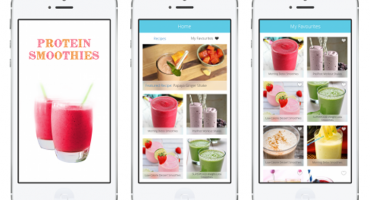Is Flutter Better than Python for Mobile App Development?
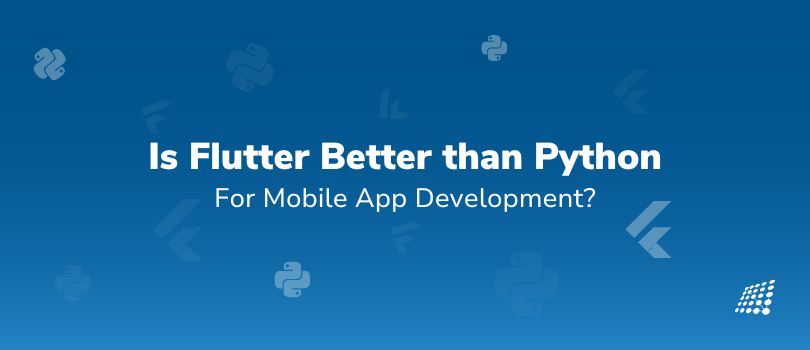
While Flutter and Python are popular choices that emerge for mobile app development, there is talk that Flutter is better than Python for mobile app development. Each technology brings unique strengths – choosing between them is a critical decision for developers. Let’s take a look at this pressing question “Is Flutter Better than Python for Mobile App Development?” and find out the truth.
Understanding the Contenders: Flutter and Python
Flutter

Why is Flutter for mobile development considered a good move? Well, Flutter is Google's open-source tool that's been a hit in the app development arena since 2017 for crafting smooth, sharp, and responsive apps across all platforms from a single codebase.
Google's Flutter SDK comes loaded with everything a developer needs: a rich framework, customizable widgets, and comprehensive tools. It's powered by Dart, designed for easy learning and fast results.
Flutter's Key Features
One Code, Many Apps: Write once, wow everywhere—iOS, Android, web, desktop—with Flutter's single codebase approach, streamlining app development.
Instant Updates with Hot Reload: The Hot Reload feature brings code changes to life instantly, saving precious time in the development phase.
Vast Widget Catalog: Flutter's widget suite is extensive and versatile, enabling the creation of detailed, beautiful user interfaces with effortless coding.
Top-Notch Performance: Thanks to Dart and the Skia graphics engine, Flutter translates directly into native code, delivering high-octane performance and zippy graphics without the lag.
Aesthetic User Interfaces: Flutter makes it simple to adhere to Material Design and Cupertino standards, guaranteeing a gorgeous UI that feels at home on any device.
- Robust Community Backing: Flutter's rapid growth is fed by a supportive community. From handy plugins to out-of-the-box functionality, it's all there in the evolving Flutter ecosystem.
Advantages:
Accelerated Development: The tools and features of Flutter for app development ensure ideas turn into apps faster, reaching users quickly.
Saves Money: Flutter slashes costs—no need for separate iOS and Android teams, thanks to that single codebase.
Consistency Across Platforms: With Flutter, your app looks and works seamlessly on every device, warding off pesky platform-specific bugs.
Utilize Native Goodies: Flutter's plugins hook you up with the phone's native features like camera and sensors, adding that polished feel to your app.
Stunning Experiences: A rich interface spells delighted users, thanks to Flutter's smooth animations and customizable widgets.
Open Source and Free: Free to use and ever-improving by its community, Flutter is as accessible as it gets. Plus, it sports Google's stamp of sustainable support.
Python
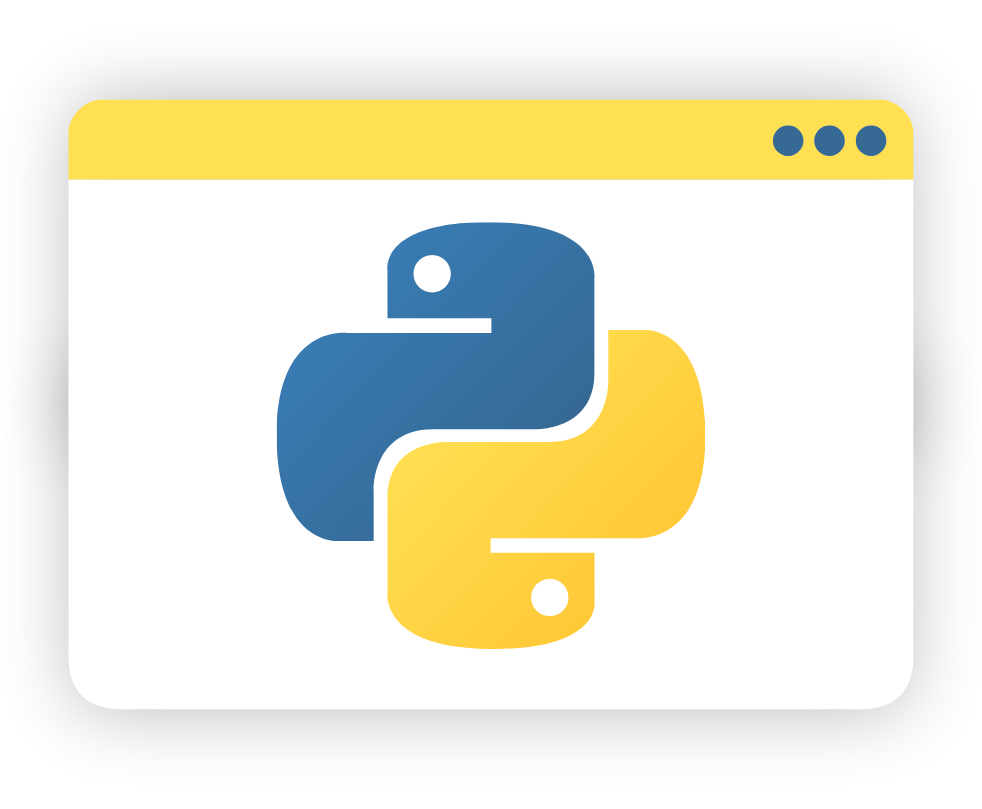
Python for mobile development is one of the most-used programming languages, with a solid community of developers behind it. Around 48% of developers use Python to build strong and reliable backends for apps.
Python is a versatile language, perfect for everything from web development to data science. Since 1991, when Guido van Rossum released it, Python's been a go-to for coders of all levels because of its clean, easy-to-read code. Running Python is a breeze; there's no need for complicated compilation—just write and execute.
Key Features:
- Python is beginner-friendly, with a simple syntax that’s also fully Object-Oriented, helping coders write reusable, well-organized code.
- It’s an interpreted language—Python reads your code one line at a time—which means quicker testing and debugging.
- With dynamic typing, Python figures out what type your variables are as you run the code, keeping things flexible but careful—it's on you to avoid type-related mistakes.
- It works seamlessly across multiple operating systems like Windows, Linux, and macOS, making it a great choice for apps that need to operate on various platforms.
- A large, active community backs Python, offering documentation, forums, and resources, constantly enriching Python’s capabilities.
Advantages:
- Python boasts extensive libraries that support a wide range of tasks, from file handling to networking, without the hassle.
- Its vast array of third-party libraries lets developers tackle projects in numerous fields, thanks to the communal effort of Python enthusiasts.
- As a high-level language, Python lets you focus on creating solutions rather than getting bogged down by system details.
A Comparative Analysis
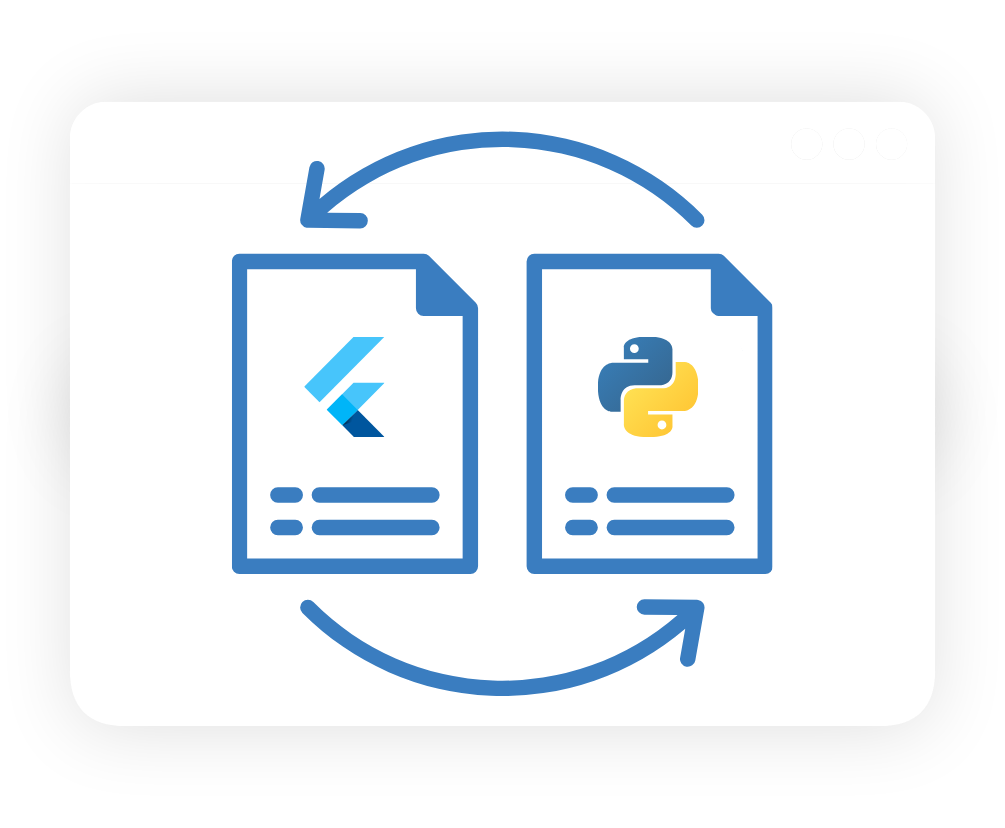
So Flutter vs Python, who wins?
- Mobile App Performance: Flutter generally outshines Python in terms of app performance due to its compilation approach. Python-based apps can experience performance bottlenecks, especially for graphically intensive applications.
- Development Speed: Flutter's hot reload feature and declarative UI approach accelerate development cycles compared to Python-based frameworks. However, Python's simplicity and readability can contribute to faster coding in certain scenarios.
- UI/UX: Flutter provides a rich set of customizable widgets, allowing for visually appealing and performant user interfaces. Python-based frameworks might require more effort to achieve comparable results.
- Cost-Effectiveness: Flutter's ability to target multiple platforms with a single codebase can potentially reduce development costs. Python, while generally cost-effective, might incur additional expenses if platform-specific optimizations are necessary.
- Community and Support: Flutter, backed by Google, has a rapidly growing community and extensive documentation. Python, being a more established language, boasts a larger community and a wealth of resources.
When to Choose Which?
- Opt for Flutter when rapid development, cross-platform compatibility, and visually appealing UIs are paramount. It's ideal for apps with complex user interfaces and frequent updates.
- Consider Python for projects that prioritize data analysis, machine learning integration, or backend logic. It's suitable for apps with simpler UIs or when leveraging existing Python infrastructure.
Ultimately, the best choice depends on the specific requirements of your project, your team's expertise, and long-term maintenance considerations. In some cases, a hybrid approach combining Flutter and Python might be the most effective solution.
By carefully evaluating these factors, you can make an informed decision to build a successful mobile app.
Flutter vs. Python for Mobile App Development
- Support Any Platform: Both Flutter and Python have the ability to support various platforms, including iOS, Android, web, and desktop. Therefore, when it comes to supporting multiple platforms, both options are equal, making it a tie.
- Wider Audience Reach: Both Flutter and Python allow developers to reach a wide audience by deploying applications on multiple platforms. Thus, in terms of audience reach, there is no significant difference, leading to another tie.
- Cost-Effective: Flutter is generally seen as more cost-effective due to its single codebase, which allows for faster and more efficient development. Python, being open-source, can also be cost-effective, but Flutter edges out slightly in this regard.
- Enhanced Flexibility: Both Flutter and Python provide high levels of flexibility. Flutter offers features like hot reload and great customizability, while Python has an extensive set of libraries and versatility. Therefore, this factor is considered a tie.
- Less Code Development: Flutter enables less code development since it uses a single codebase for different platforms. While Python can also minimize code depending on the libraries used, Flutter's efficiency in this area gives it an advantage.
- Simplified Processes: Flutter simplifies the development process through features like hot reload and declarative UI. While Python's processes can also be streamlined using various tools, Flutter provides a more direct path, giving it the edge.
- Faster to App Store: With its hot reload feature, Flutter often allows developers to get their applications to the app store faster. Although Python can be efficient with the right tools, Flutter generally wins in this area.
- Quick Prototyping: Flutter is excellent for quick prototyping due to its hot reload feature, which allows for rapid iteration. Python is good for agile development, but Flutter's speed makes it the better option for prototyping.
- App Brand: Both Flutter and Python provide ample opportunities for customization, allowing developers to tailor their applications to specific brand needs. Thus, both are equally capable in this aspect, resulting in a tie.
- Target Audience: The target audience for an app will vary depending on the project, so neither Flutter nor Python has a distinct advantage here. The choice of technology will depend on the specific requirements of the project.
- App Features: Similarly, the features of an app will vary based on the project. Both Flutter and Python can support different app features, so this factor also depends on the specific project needs.
- Pricing Strategy: Both Flutter and Python are free and open-source, making them equally attractive from a pricing perspective. Therefore, the choice of technology does not affect the pricing strategy.
- Budget: While both technologies can be cost-effective, the budget largely depends on the specific project. As such, neither Flutter nor Python has a clear advantage when it comes to budgeting, making this factor project-dependent.
- Testing: Both Flutter and Python offer good tools and frameworks for testing, so there is no significant difference in this regard. Therefore, testing capabilities are considered a tie.
- Marketing Strategy: The marketing strategy for an app will vary by project, and the choice between Flutter and Python does not significantly impact it. Thus, this factor is dependent on the specific project.
- User Experience: Flutter offers an excellent user experience with native-like performance, while Python can be customized to provide a good user experience. However, Flutter is generally considered better for creating high-performance, native-like apps.
- Smooth and Efficient: Flutter excels in providing smooth and efficient app development due to its hot reload feature and overall performance optimization. Python can achieve efficiency with proper optimization, but Flutter tends to be more consistent in this area.
Overall, Flutter often emerges as a strong contender for mobile app development due to its cross-platform capabilities, performance, and ease of development. However, the best choice ultimately depends on your specific project requirements, team expertise, and budget.
Businesses Using Flutter
1. Google:

Rebuilding Google Pay on Flutter resulted in a 70% reduction in engineering effort and a 35% decrease in codebase size. Other notable Google apps built with Flutter include Google Earth, Google Analytics, Google Ads, Google Classroom, and YouTube Create.
2. Universal Studios:

Flutter helped Universal Studios create next-generation experiences with a 45% decrease in codebase size, a 0.1% crash rate, and a 44% shorter release cycle.
3. Alibaba Group:
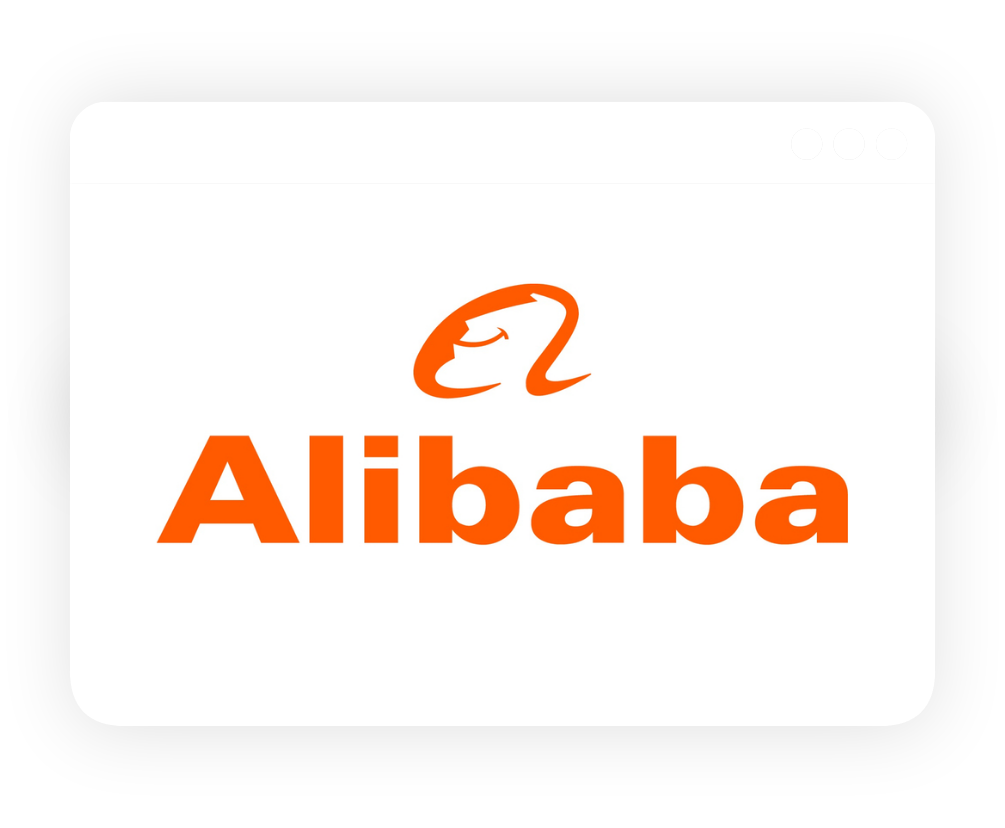
China's largest second-hand marketplace, Xianyu, scaled its app with Flutter to deliver a consistent, beautiful, and fast user experience across platforms.
4. BMW:

The My BMW app, built with Flutter, allows users to monitor, control, and navigate their cars with ease. Flutter enabled BMW to deploy over 10,000 versions of 96 different app variants in record time, eliminating the need to manage multiple codebases.
5. eBay:
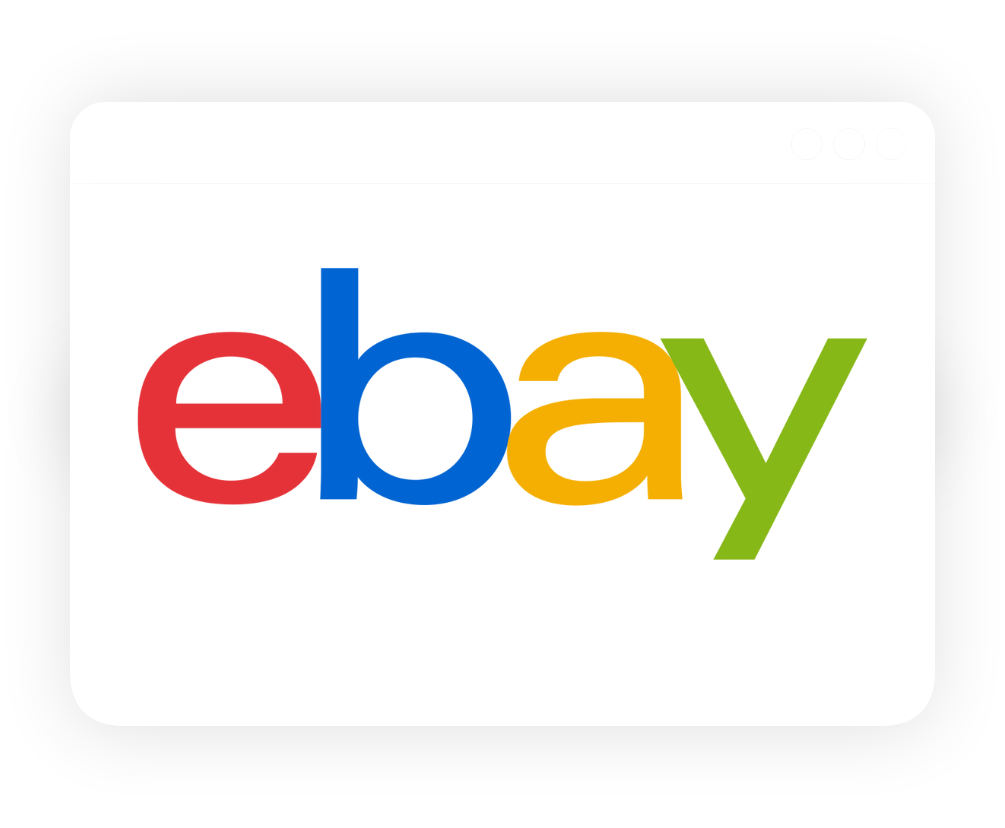
Flutter has helped eBay achieve significant efficiency gains. With 98.3% shared code, eBay Motors can now ship new app versions to both app stores weekly. This has enabled them to quickly add new features like live chat, escrow, and community boards.
6. Toyota:

Flutter's open-source nature and strong developer community have been instrumental in Toyota's success. The company is using Flutter to improve infotainment systems in their vehicles and is excited about the future possibilities.
7. Xiaomi:
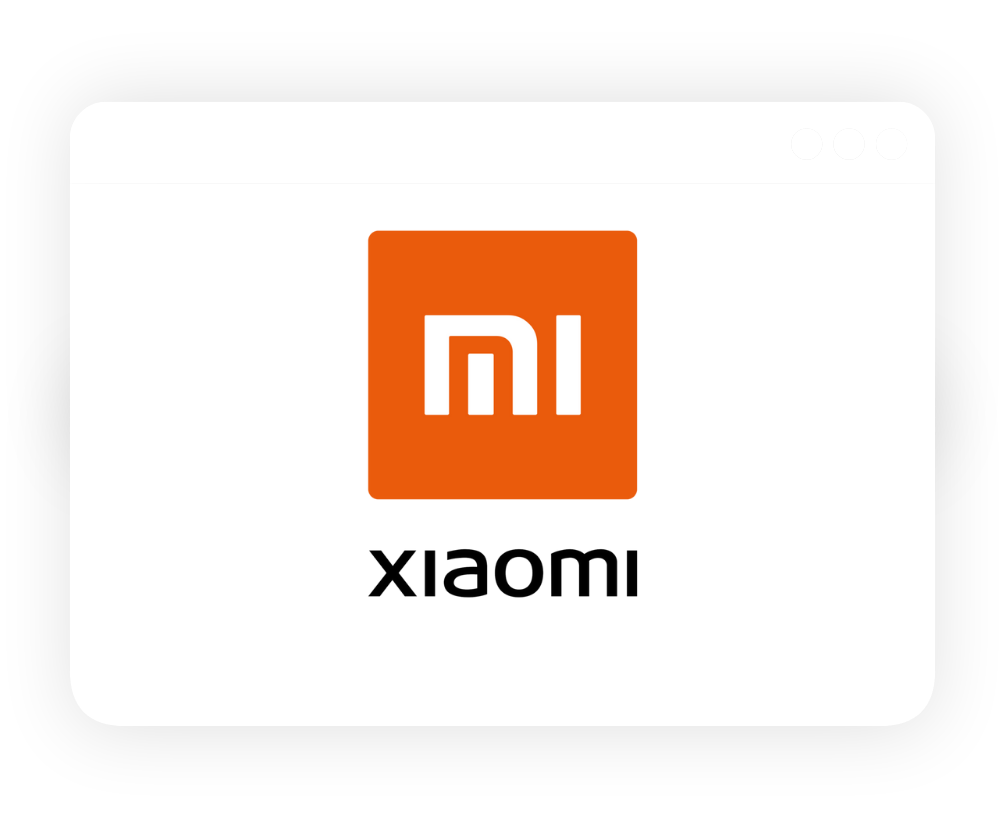
This Chinese tech giant chose Flutter to develop a companion app for their new EV, the Xiaomi SU7. Flutter's capabilities have fueled innovation and helped Xiaomi deliver a high-quality user experience.
Why Choose SJ Innovation for your Flutter App Development?
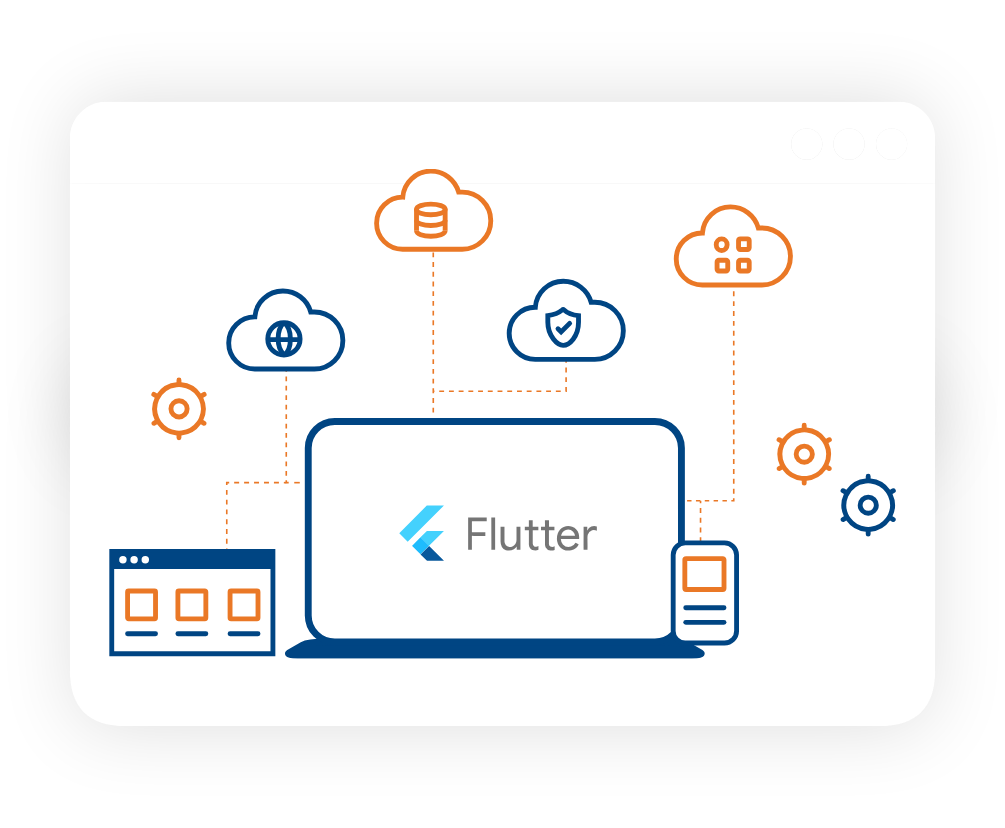
Our team of expert Flutter developers can help you build highly interactive, functional, and flexible mobile apps that stand out from the competition. Our shared codebase approach accelerates development and saves you money. Our skilled developers, UI/UX designers, and QA specialists ensure top-notch quality. We leverage the latest Flutter features and integrate with popular backend technologies like PHP, Laravel, NodeJS, and AWS. Our focus on design and usability guarantees a seamless experience for your users.
Conclusion
- Flutter is a great choice for:
- Cross-platform apps with a focus on performance and user experience.
- Projects that require rapid development and iteration.
- Teams with experience in Dart or other object-oriented languages.
- Python might be a good option for:
- Complex projects with extensive backend logic.
- Teams with strong Python expertise.
- Projects where performance is not the primary concern.
All in all, while both Flutter and Python have their benefits for mobile app development, Flutter is usually the best choice for cross-platform development

The Story of My First Acquia Certification
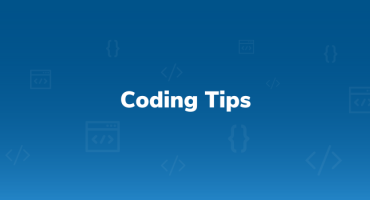
Coding Tips, Duke Experience
